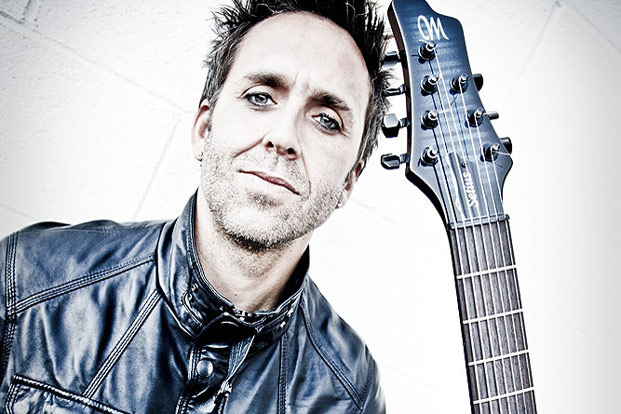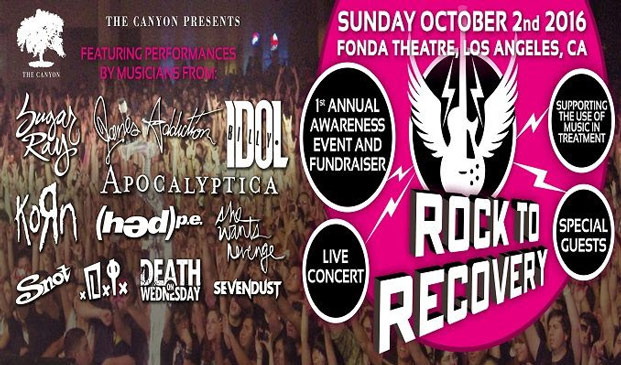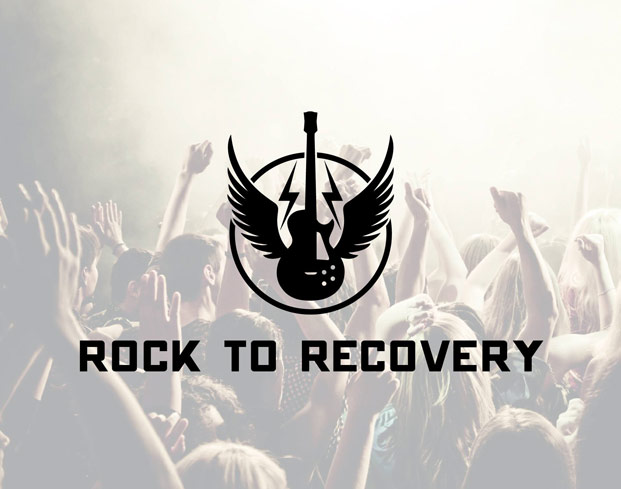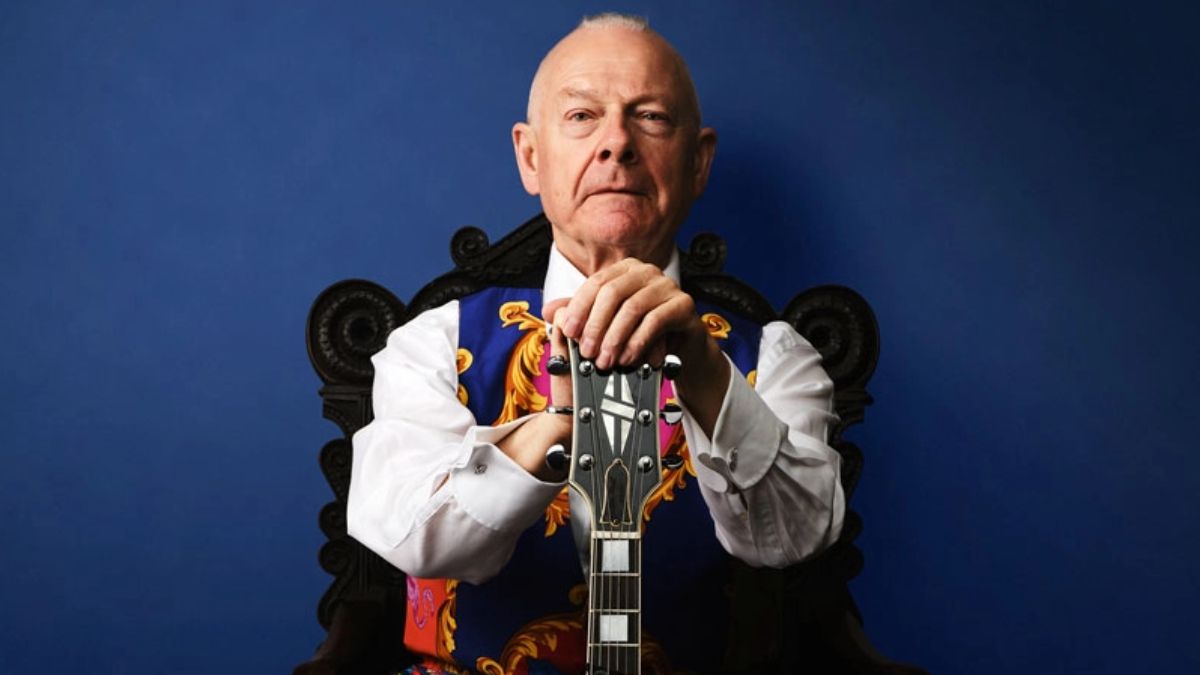Former Korn Guitarist Wesley Geer Talks First Annual Rock to Recovery Benefit Concert

Wesley Geer has logged time playing guitar in bands like Korn and (hed) p.e., but these days he spends a large portion of his energies focusing on Rock to Recovery, a program that helps those in treatment for drug and alcohol addiction and other afflictions.
The non-profit entity, which Geer founded in 2012, aims to bring music into treatment centers by enabling program participants to form bands, write songs together and even record their work, offering a therapeutic release and an opportunity to channel their energies into a creative pursuit.
This coming Sunday, October 2, Geer will host the first Rock to Recovery fundraiser at the Fonda Theatre in Los Angeles. The event will honor Social Distortion leader Mike Ness, who will be the recipient of the first-ever Rock to Recovery Award, signifying his journey as a musician who has overcome addiction and become a positive role model to others fighting their own substance battles.
The event also will feature music from a band consisting of current and former members of Jane’s Addiction, Billy Idol, Sugar Ray, Korn and others.
Geer took a few minutes to discuss his own past with substance abuse, what led to his founding Rock to Recovery, and the star-studded event at the Fonda, tickets for which can be purchased here.
What's your history with addiction?
After I toured with my first band, (hed) p.e., that band kind of crumbled for a variety of reasons. Addiction was certainly a part of it. I was a musician lost in my addiction, not knowing which way to turn. But I listened to the people who said, “There’s a way out of this hole, and if you do certain things you could have this incredible life.” I listened and I gave them a chance and I tried this life of recovery. I thought music for me was over but it seems like god, the universe, whatever you want to call it, had a different plan in mind and now here I am. Instead of being cast out of music, I’m able to call upon all my friends and the things I created in my past and bring it together for something good. To going from the deepest, darkest hole to this magical place of being able to help people and get all my friends and musicians together, it’s just an incredible feeling. It’s triumphant, it’s fulfilling. It’s hard to believe.
All the latest guitar news, interviews, lessons, reviews, deals and more, direct to your inbox!
How did Rock to Recovery come together?
It was a few things. I was with Korn, and I had already transitioned out of music once after (hed) p.e. And it was tough, because, you know, I’m a musician. I’m not a like a doctor or something—I don’t have a trade. So, the thing with Korn was, I figured, “Well, this gig’s probably not going to last forever. Nothing ever does.” And I had learned in this new sober lifestyle that instead of it being all about “money, fame, fortune, cars, women, what can I have? More, more, more,” you start learning that life’s about giving back. Life’s about bringing something. And I thought, I could die someday and it would just be, “Oh, yeah, that guy was a guitar player.” I wanted to leave my mark with something bigger than myself that could help people, and that could be around long after I’m gone. So, I started looking for this kind of answer. And I talked to a friend who had gone to rehab and he said he had done some music as a group. From there, Rock to Recovery just kind of came to me. Instead of being like, “This is so screwed—I’m sober and I’m a musician and I can’t be a musician and be sober,” I decided to turn it into a positive.
What was your experience in treatment like?
I remember when I was in treatment, there was no music, but I had my guitar. And the guitar, the drugs had made it have no value. Because that’s what happens, you get into your addiction and all the stuff you love, you just don’t care anymore. You’re just so bummed. Family, guitar, whatever you love, you don’t care about it anymore. But when I came into my new days of sobriety, all of a sudden the simplest chord would just soothe my soul and then we’d write these songs and would goof around. Because you go to rehab, and it’s 20 guys. It’s clique-y, you don’t like that guy, you like that guy, your case manager is annoying, you’re emotional, you’re bummed out, it’s very awkward. But we’d write these silly songs and all of a sudden the whole community would come together and we’d just start laughing.
We’d forget personalities and join together over music, as cheesy as that sounds. So that’s kind of where it came from. I was like, “I want to bring that experience into treatment centers because I know how much it helped us and helped me.” I didn’t really know how it would work or if it would work. I was just kind of desperate. But I talked to the universe and said, “Look, I’m a sober-drug-addict-alcoholic, and I’m a musician.” I kind of felt this was my destiny to be this person. So, instead of being bummed about it, I was like, “God, universe, how can I help people with who I am and make a living?”
How does Rock to Recovery work?
We are designed to integrate with treatment programs. At this point, we are not freestanding. So, if somebody was going to go into a treatment program, like a rehab or Wounded Warrior or something like that, we’re part of the treatment curriculum for over 60 different programs. So you would find us embedded in their treatment plan. We donate services also to a lot of state-funded places and non-profit organizations that would never get to experience our services. We’re even starting to work with the Boys & Girls Club of America, the Salvation Army, organizations like that.
What is your objective with the event at the Fonda?
The whole point of the event is to raise funds and awareness, so we can grow this program. I think for everybody, they’re like, “I’m not a musician, I can’t do this! And then they come out the other side saying, “Wow! I can do this!” There is joy and it kind of gets you to believe in the magic, if you will. That it’s not all doom and gloom. There’s a way out and I think it provides for people. Because the guys that do these sessions are all sober dudes who have overcome their dark days. So, I think it comes at people in a few ways. It gives them hope, it gives them self esteem. It gets them connected and pulls them out of that isolation.

Mike Ness of Social Distortion will be receiving the program’s first ever Rock to Recovery Award. Can you shed some light on Mike’s battle with addiction and what led in the decision to choose him as the program’s first official honoree?
Well, I would never speak to somebody else’s addiction. That’s not appropriate and just not my place. I can only say that usually, for us—people who battle addiction—it’s very much the same. Some of the scenarios may change, or maybe we use different substances. But there’s basically a loss of control. You’re putting your life in danger. You’re hurting the people around you. You have a deadly disease, if you will, that can be very difficult to overcome. And if you also add in the fact that, in Mike’s case, this is a guy who’s in the music world—not only just in it, but an iconic leader, the singer of his band—that makes it even more difficult, because it’s a lifestyle that’s all around. To make that transition in an industry that’s rife with drugs, alcohol and debauchery is really a statement of hope that it can be done.
And it can be done with dignity and class, and it can be done if you’re a punk or a rock n’ roll star. So that is the message of Rock to Recovery, and that’s why we wanted to honor him. Because along with that, along with overcoming all of the bad stuff, all the damage and all the hurt, when you get into recovery, now you have a guy like Mike who’s helping people. A guy who’s a beacon of hope and who shows that you can beat this demon.
The All-Star Jam will feature guys like Sugar Ray’s Mark McGrath, Steve Stevens, Billy Morrison and Erik Eldenius from Billy Idol’s band, Franky Perez from Apocalyptica and Chris Chaney from Jane’s Addiction. What led to them getting involved?
Well they’re not all guys battling addiction. Some are, some aren’t. Rock to Recovery isn’t only about helping addicts. We help Wounded Warriors who maybe drink, but have to overcome PTSD or TBI [traumatic brain injury] or suicidal ideation. We help at-risk youth. So we do work mostly on addiction, but we’re really implementing music in the areas where we can help people with it, which we found are mental health, depression and anxiety. So the guys here have donated their time to come out and play in support of the cause, which is great. We can reunite the sober world, the normal people world, whatever, and together join forces against these disorders, which really are all mental disorders. So what they’re doing is supporting us and donating their musicianship and their time to this cause, which is to take away the mystique of it all, shed more light on it and give more opportunity to help people that need it through our program.
Are there any other artists within the rock community that have donated to Rock to Recovery?
I consider someone’s time, or when an artist plays for free, a donation. So, all of the artists that you see on the bill have made a donation of sorts. And there are others. Jaime Pressly, an Emmy-winning actress, is super into this cause in supporting us. We’ve got Scott Holiday from Rival Sons. We’ve got Jason Wahler, who was on The Hills and Laguna Beach, who’s been a huge support. Tony Alva, the famous skater. McKenzie Westmore, the actress. Chester Bennington has been supportive of our organization. And we’ve got Mike Ness, who’s coming down and supporting us. That’s a big deal, you know? Because you don’t have to be open about this stuff. People can keep it private.
For those reading this article and are currently battling addiction, what message does Rock to Recovery have for them?
That you don’t have to do it alone. That alone, it’s very hard to overcome this stuff. But you don’t have to be ashamed. You just have to open your mouth and tell people that you need help. Together, we can totally overcome any challenges, whatever they are. There’s always a way out. There’s always someone who’s had it worse than you and who made it out to have an amazing life. So you don’t have to be afraid to say, “I need help.”

